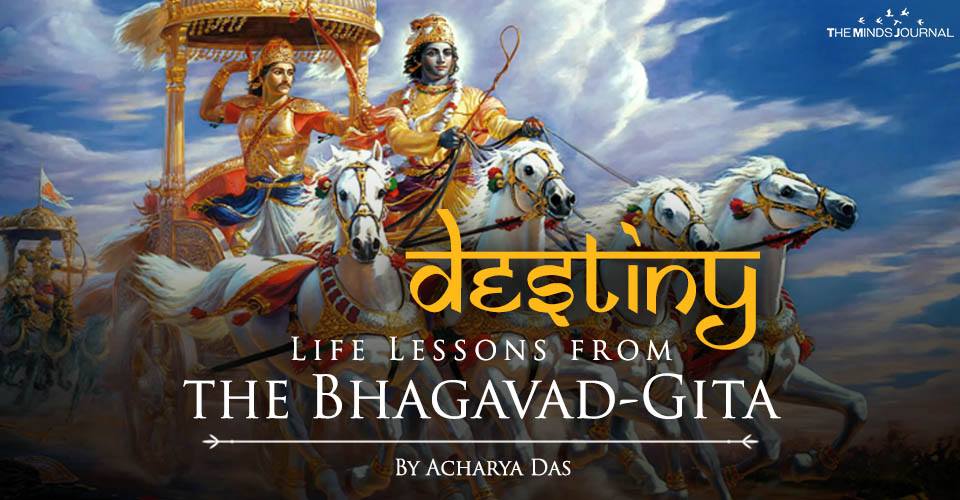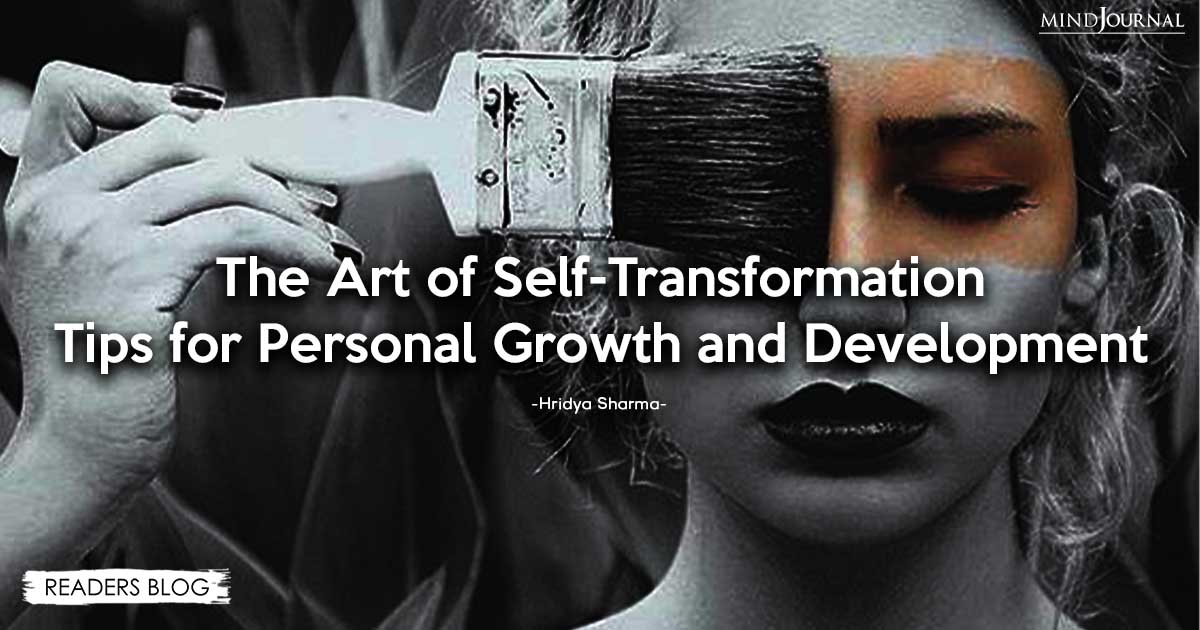Many people wonder, “What does the future have in store for me? Am I controlled by some higher force? Does God have a plan for me and, if so, what is it? Or is my life simply an arbitrary sequence of events? Do I play a role in determining my future? Can I change my destiny?” People want to be able to know their future and what will happen to them – if they’ll succeed in their careers or love life.
When we think about our destiny, there’s a certain presumption we have. We generally think about all the positive things that could happen to us, and how those things will make life wonderful. We have a preconceived notion that if we acquire all the things we desire, somehow life is going to be perfect.
But what we need to understand is that we are subject to material laws that play a major part in shaping our destiny. Our destiny is not simply what we desire. As we have all experienced, material existence will provide unexpected and inescapable events, very often in direct opposition to what we were hoping for. “What was that?” we might ask. It was your karmic reaction coming back to you. The meaning of ‘karma’ in Sanskrit means action, and according to the laws of karma, all action will bear fruit. That fruit will be either sweet or bitter. Our previous actions, in this life and previous lives, play a big role in our destiny.
Another material law that affects our destiny is the law of reincarnation, or transmigration of the soul. Whether we accept it or not, reincarnation is a reality. We see a newborn baby and gush, “Oh it’s so cute,” thinking that the baby is wonderfully new, fresh, and innocent. But what we are not seeing is that this person is not actually a child. It is a living being who is temporarily in that new, little body. Ten months prior to birth, if we could see that same person, in whatever body they were in at that time, we may not have thought they were so attractive and cute. They could have been in a 90-year-old body with no teeth, coughing up mucous, and hardly able to talk. We probably wouldn’t want to cuddle that person, in the same way we do with a tiny baby. But it is the same person. The seed of old age and disease is there at birth.
Just because there has been a change of body, caused by the event of death, we think that the slate has been wiped clean. But that is not a fact. Every single person born into this world comes with baggage. That baggage presents itself as the family we are born into, the economic status we enjoy, our opportunity for learning, and the type of society that we are born into. They have all been predetermined by the activities we engaged in, in a former life, and they shape our destiny.
But what about the actions that we are performing today? Do they have an immediate effect on our life, on our destiny? There is a saying, “The harder I worked, the luckier I got.” This is actually a really good expression, because it reflects the reality that we can, to some degree, shape our so-called luck or fortune. For instance, there are people in this world who are born into great poverty and, within one lifetime, may rise to become multi-millionaires. Their hard work and determination are not irrelevant.
Such people might think, “Well, I created my own luck. It was because of my intelligence and all my hard work that I became wealthy.” But this ignores the ‘luck’ of being in the right place at the right time, having an opportunity offered to us, and being adequately equipped to take advantage of that opportunity. These are not solely our own doing. But that does not mean that this idea, “The harder I worked, the luckier I got,” is not also a reality to some degree.
There are four significant events that will happen in our life, all of which are inescapable. They simply come with the territory of life here. The mere fact that we have a material body and have taken birth in this world, means we will experience these four things. The first is birth itself. Secondly, our body is going through a process of aging. Perpetual youthfulness is not possible. Thirdly, during our lifetime, we will encounter diseases. According to the level of bad karmic fruit that we need to reap, and the choices we make in this life, any resulting disease may be moderate or very grave. Lastly, there is death. When a little baby shows up, most people don’t see that its death is born along with it. Death is certain. It is inescapable. And having died, taking birth again is also inescapable. It is part of the reality of material life.
It says in the Bhagavad-Gita:
As the embodied soul continuously passes, in this body, from boyhood to youth to old age, the soul similarly passes into another body at death. A sober person is not bewildered by such a change.
Bhagavad-Gita 2.13
And in the next verse it says:
When the embodied being is able to transcend the three modes associated with the material body, he can become free from birth, from death, old age and their distresses and can enjoy nectar even in this life.
Bhagavad-Gita 14.20
It is possible, even within this life, to transcend these inescapable realities. A transcendentally situated person does not experience these events in the same way as everyone else. For one who has come to a platform of spiritual understanding, and attained at least the beginnings of actual self-realization, the experience of death is not a concern. Death is not a traumatic event for an actual yogi or saintly person. It is just an event that they go through, and they are untouched and unfazed by it.
Another aspect of the inescapable realities of this world are the material dualities. In this world, things come in pairs. Happiness is always paired with distress, and heat with cold. Existing in a material body means you will be confronted with these dualities. We cannot have one without the other.
In the Bhagavad-Gita, Krishna is speaking to Arjuna. He says:
O best among men [Arjuna], the person who is not disturbed by happiness and distress and is steady in both is certainly eligible for liberation.
Bhagavad-Gita 2.15
When liberation is mentioned here, it refers to becoming free from all forms of suffering; all the unpleasantness that is experienced in relation to this world. People are hungry for a perfect situation, not understanding that the perfect situation they desire does not exist within the plane of material existence. It exists in the liberated state, a state which a person can experience even while being embodied within this world.
The Bhagavad-Gita states:
One who is equal to friends and enemies who is equipoised in honor and dishonor, in heat and cold, happiness and distress, fame and infamy, who is always free from contaminating association, who is silent and satisfied with anything, who doesn’t care for any residence, who is fixed in knowledge, and who is engaged in loving service – such a person is very dear to Me.
Bhagavad-Gita 12.18-19
In this verse, Krishna has described someone who has attained the transcendental position and how they have become freed from the influences of these dualities.
One who neither hates nor desires the fruits of his activities is known to be always renounced. Such a person free from all dualities easily overcomes material bondage and is completely liberated, O mighty-armed Arjuna.
Bhagavad-Gita 5.3
Our destiny is shaped by our actions, whether past, present, or future. But what is the cause of our action? Desire. According to the nature of our desires we are going to engage in different activities.
And what is shaping our desire? Our consciousness. When we are in a certain type of consciousness, we will desire certain types of things. That will result in action, with a karmic result. Therefore, our desires and actions will shape our destiny. But according to our free will and choice, we can determine what type of consciousness we will have.
In the Yoga Sutra, Patanjali says that:
All the fruits of past actions both pleasurable and painful are considered sorrowful
Yoga-Sutra 2.15
He says that those things that are considered either pleasurable or painful are equal, because they both bring sorrow to the living being; they both result in further bondage and suffering. They are experienced in three ways:
- The first is the anxiety and fearfulness experienced from losing what we have gained.
- The second is that material activity leads to renewed material desire, which leads to further material activity. If we continue to act in this way, we continue to be bound to the material world.
- Thirdly, there is the constant stimulation by the energy known as the three modes of material nature – goodness, passion and ignorance. Under their influence, the mind becomes stimulated by the desire for material activity. This leads to increased control of the mind by the objects of the senses, and so further material conditioning.
However, engaging in action that is spiritually motivated means to live in transcendence. Such actions are liberating and they have absolutely no karmic results. It is possible to alter the direction of our life by engaging in activity founded on true spiritual understanding.
Sri Krishna speaks to this subject. He says:
Abandoning all attachment to the results of his activities, ever satisfied and independent, he performs no fruitive action, although engaged in all kinds of undertakings.
Bhagavad-Gita 4:20
Sri Krishna is speaking about a transcendental or truly spiritual personality, an actual yogi. They may appear to be like everyone else, engaging in a whole variety of undertakings, but they are living their life with a different focus and a different purpose.
And in yet another verse:
One who performs his duty without attachment, surrendering the results to the Supreme Lord, is unaffected by sinful action, just as a lotus leaf is untouched by water.
Bhagavad-Gita 5:10
This principle is really important and it distinguishes two different types of persons. One person is greedy to try to enjoy this world, and to find happiness here. They, therefore, cannot escape the reality that their destiny will be one of bondage, along with the simultaneous experiences of suffering and so-called happiness.
If we want things to be different, we must choose a new course of action, where our actions are not being determined simply by material desire.
If we are able to cultivate spiritual desire, the desire for true happiness, then our life begins to take another course. The inescapable events, like the experiences of disease, old age, and the death of this body, will continue, but we will be untouched by them. These things will be minor events in our life.
If we live with a clear understanding of who we are, and if we choose a course where we seek a spiritual outcome, 0 our destiny. Our destiny is not going to be shaped by the laws of material nature. It is going to be shaped by a spiritual principle.
Sri Krishna says:
O son of Kunti, all that you do, all that you eat, all that you offer and give away, as well as all austerities that you may perform, they should be done as an offering unto Me.
Bhagavad-Gita 9:27
If our life has a spiritual focus, where our activities are being undertaken as a spiritual offering, rather than as a self-centred attempt to try and fill up the emptiness within our self, we are acting in harmony with our original spiritual nature.
Sri Krishna says, in another verse, that having a spiritual focus in your life means to attain liberation:
That is the way of the spiritual and godly life, after attaining which a man is not bewildered. If one is thus situated, even at the hour of death, one can enter into the Supreme Abode.
Bhagavad-gita 2:72
So, our destiny is in our own hands. By our desires and actions, we determine our destiny. If we want to come to a spiritual position, where we do not have to taste the bitter fruit of karma, then we can choose a spiritual destiny. It is entirely up to you.








Leave a Reply
You must be logged in to post a comment.